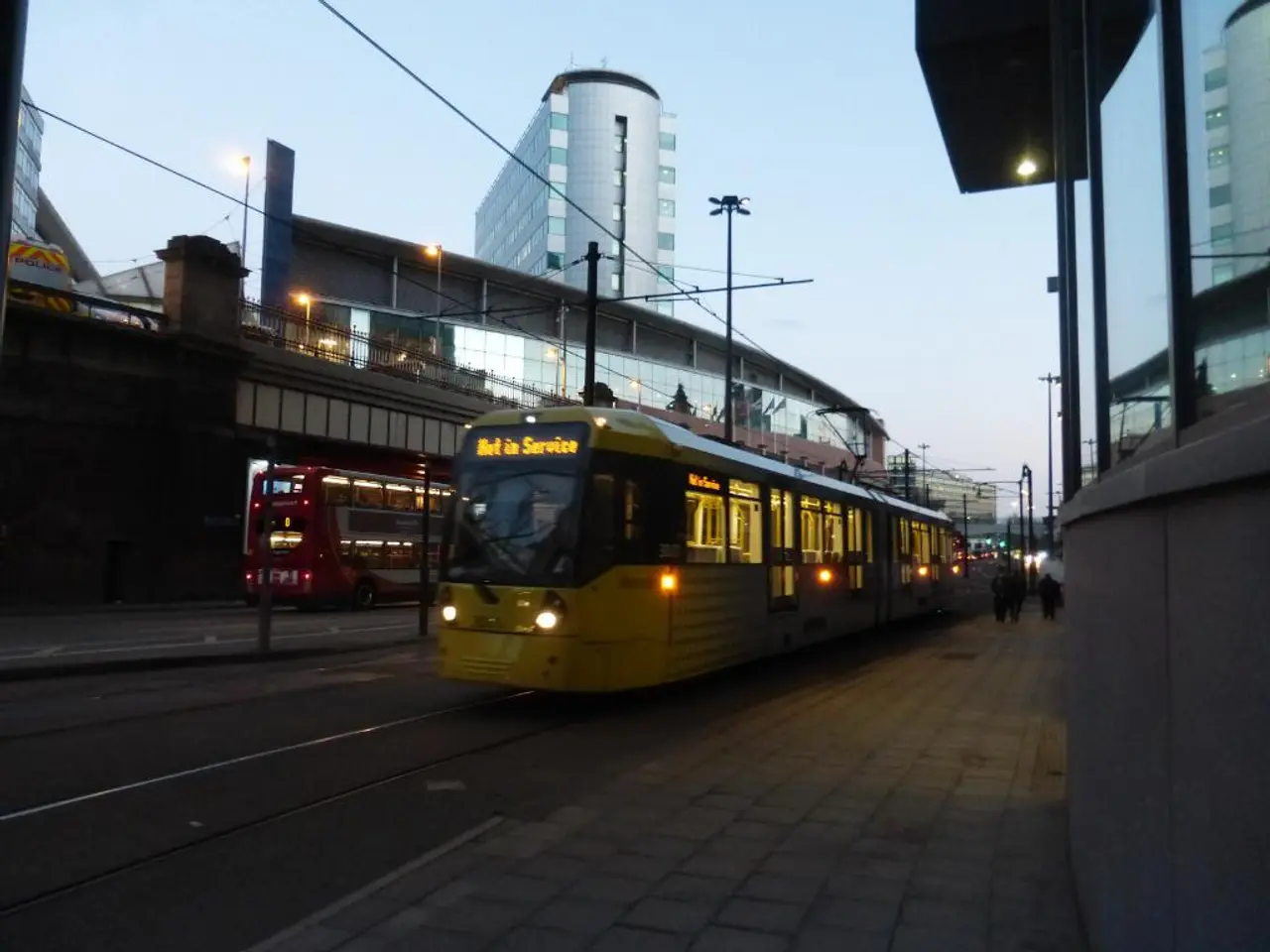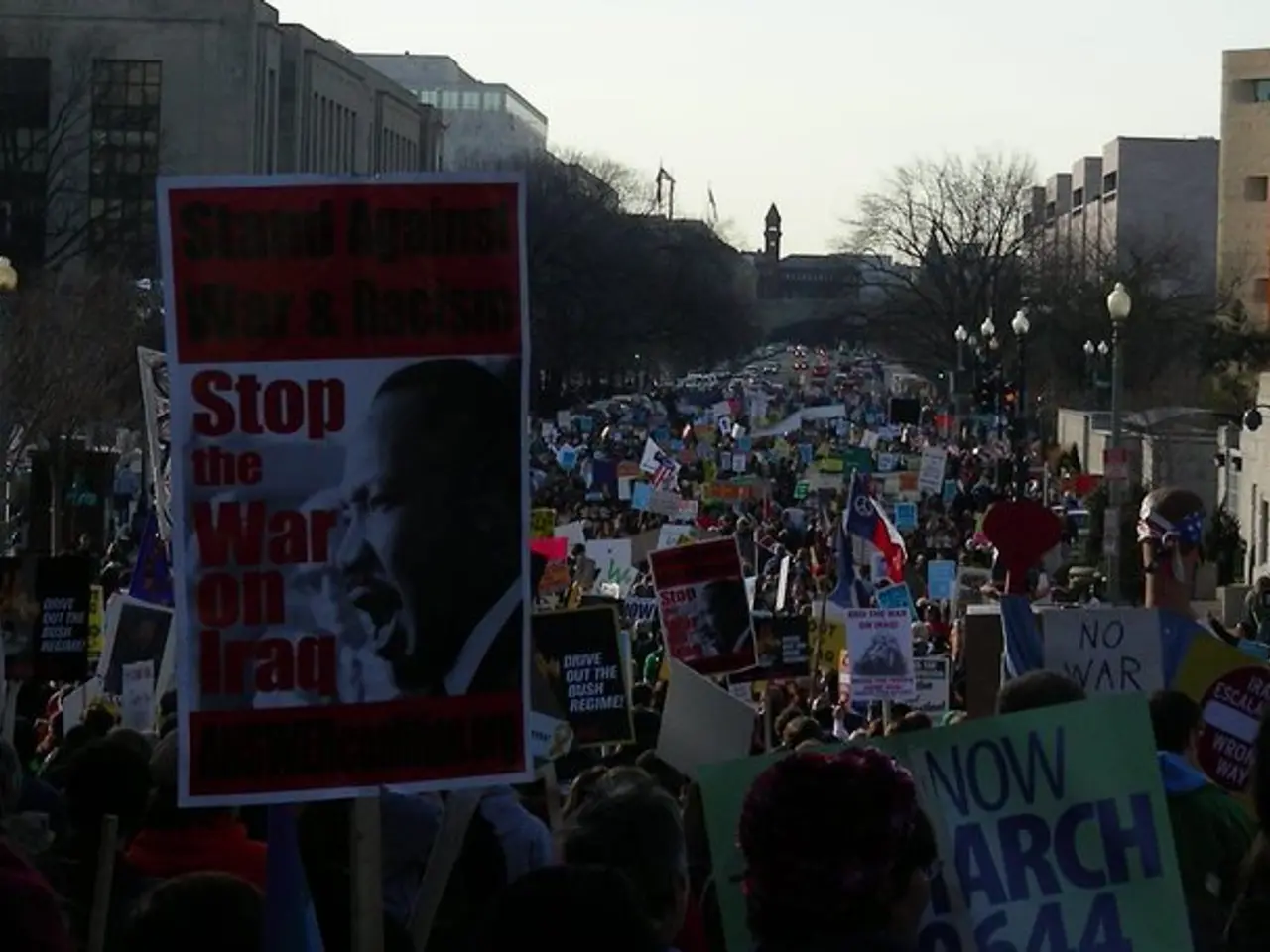Moldova Facing Challenges due to Energy Disruptions Caused by Russia
In the heart of Eastern Europe, Moldova is grappling with an energy crisis that has taken a toll on its economy and population, particularly in the breakaway region of Transnistria. The crisis was triggered by Russia's complete halt of gas supplies to Transnistria in January 2025, leaving critical infrastructure as the only warm respite in the cold residential areas.
The Kurchugan power plant, a primary electricity supplier for Moldova, has had to switch to burning coal to keep the lights on. However, the coal supplies at Kurchugan are expected to last only about 50 days, adding to the urgency of the situation.
Transnistria, which relies heavily on Russian gas but does not pay for it directly, has been struggling to cope with the energy shortage. Local authorities are establishing "heating points" and advising families to consolidate living spaces to conserve warmth. Yet, the ongoing humanitarian crisis in Transnistria is hampering recovery efforts and increasing pressures on President Maia Sandu's administration.
Moldova, backed by EU funding and international support, is advancing strategies to ensure energy independence and support vulnerable populations. The European Commission has agreed with Moldova on a comprehensive two-year strategy to decouple Moldova from Russian energy dependency and fully integrate it with the EU energy market. This includes up to €250 million investment in 2025, with part of it devoted to mitigating household energy cost increases and supporting vulnerable populations.
However, the crisis has political ramifications. Moldovan President Maia Sandu stated the unresolved status of Russian troops stationed on the left bank (Transnistria) as a major obstacle to solving the region’s economic issues. The energy crisis exposes the deep geopolitical divide and complicates efforts for reconciliation and regional stability.
The crisis may lead to energy shortages, potentially reshaping Moldova's political landscape. The Moldovan government is preparing to purchase more expensive electricity from Europe due to the gas disruption. If the energy shortage extends, it may lead to public unrest and increased support for pro-Russian parties. This could lead to increased costs for citizens and businesses in Moldova.
The flow of Russian gas to Moldova through Ukraine stopped on January 1st, and the gas disruption is due to Kyiv's decision not to renew a gas transit agreement with Gazprom. In response, Moldova has declared a state of emergency. The gas pressure in Transnistria is severely low due to the gas disruption, and local residents like Dmitry report that their hot water is off and radiators are barely warm.
Officials are framing the energy crisis as a security threat. Olga Rosca, a foreign policy advisor to Moldovan President Maia Sandu, stated that the crisis is a strategic move by Russia to destabilize Moldova ahead of parliamentary elections in 2025. Despite these challenges, Moldova remains resilient, working tirelessly to alleviate hardships caused by the crisis and forge a path towards energy independence.
- The on-going energy crisis in Moldova, particularly in Transnistria, has led to political tensions, with President Maia Sandu highlighting the unresolved status of Russian troops in Transnistria as a major obstacle to solving the region's economic issues, suggesting that the crisis may be a strategic move by Russia to destabilize Moldova ahead of the 2025 parliamentary elections, thus influencing the politics of the region.
- The European Commission's two-year comprehensive strategy to decouple Moldova from Russian energy dependency and integrate it with the EU energy market, including €250 million investment in 2025, is a significant policy-and-legislation move aimed at ensuring energy independence for Moldova and supporting vulnerable populations, amidst the backdrop of war-and-conflicts and general-news stories involving energy crises.








